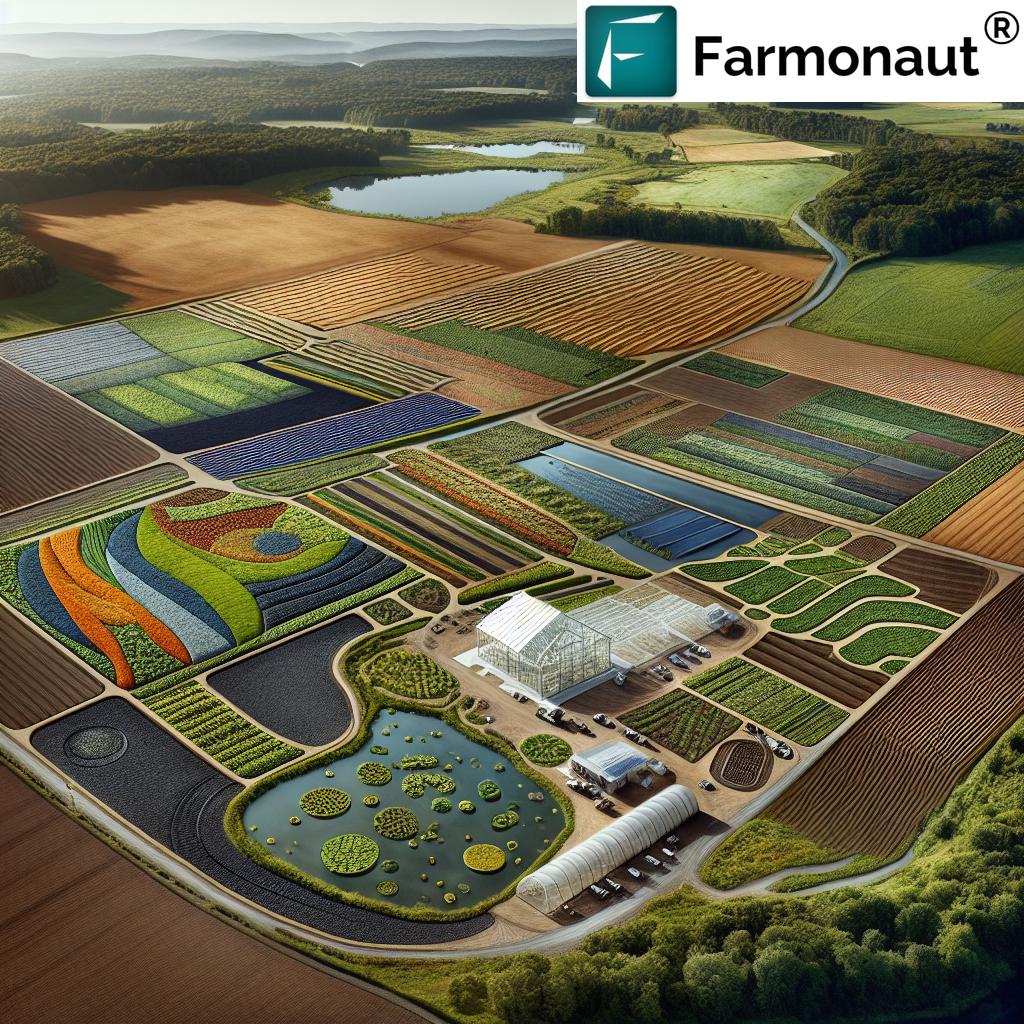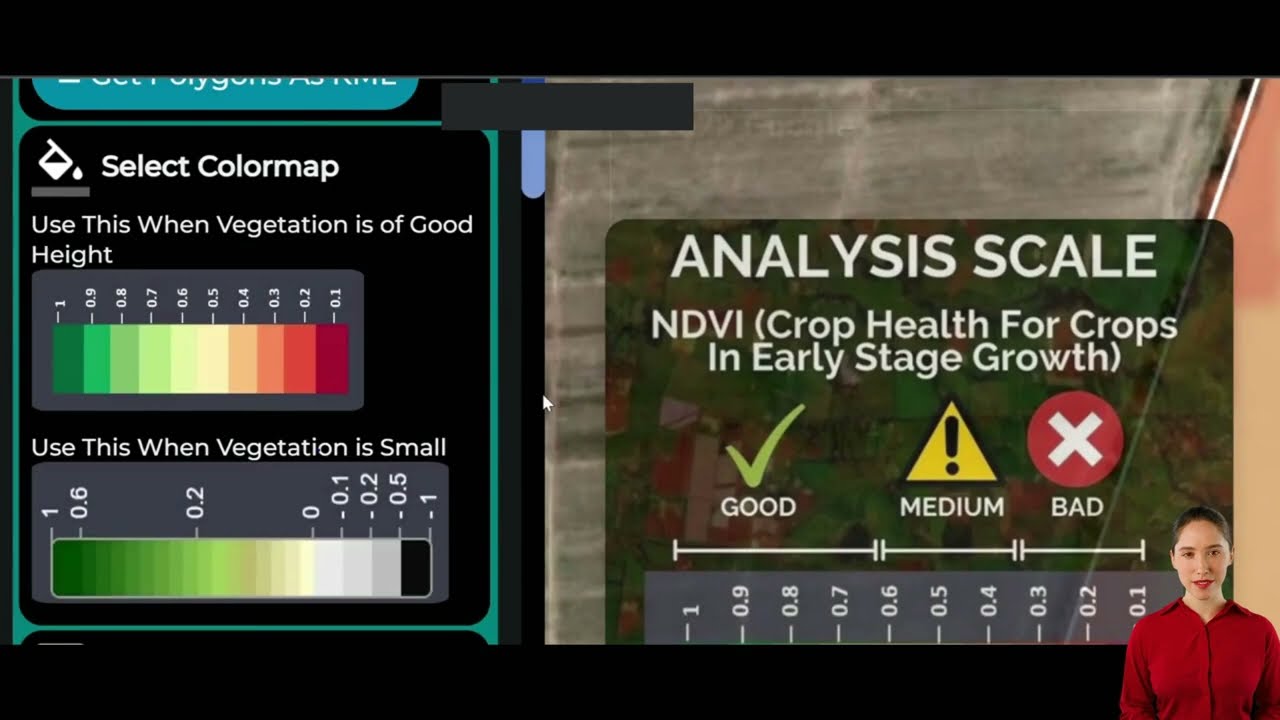New York’s $25 Million Boost for Sustainable Farming: Empowering Water Quality Conservation and Climate Resilience
“New York’s $25 million investment in sustainable farming practices marks the 30th anniversary of its Agricultural Non-Point Source Abatement program.”
In a groundbreaking move that’s set to revolutionize farming in the USA, New York State has unveiled a historic funding initiative aimed at bolstering sustainable agricultural practices and water quality conservation. This $25 million investment is not just a financial boost; it’s a commitment to empowering farmers, protecting our environment, and building a resilient future for agriculture in the face of climate change.
The Agricultural Non-Point Source Abatement and Control Program: 30 Years of Progress
As we celebrate the 30th anniversary of the Agricultural Non-Point Source Abatement and Control Program (Ag Non-Point), it’s crucial to understand the significance of this milestone. For three decades, this program has been at the forefront of supporting sustainable agricultural practices, with an impressive track record of awarding over $250 million to projects focused on conserving water quality.

The current funding cycle marks a new chapter in this program’s history. With $25 million available for conservation projects, we’re witnessing an unprecedented commitment to environmental stewardship in agriculture. This substantial funding is made possible through allocations from the Environmental Protection Fund and the 2022 Clean Water, Clean Air and Green Jobs Environmental Bond Act.
A Commitment to Environmental Stewardship and Climate Resilience
New York State Agriculture Commissioner Richard A. Ball highlighted the remarkable progress made in environmental stewardship over the past three decades. He emphasized how farmers have been instrumental in protecting natural resources and adapting to the challenges posed by climate change. This funding is seen as a critical tool in helping farms implement best management practices to conserve water and safeguard waterways, which are essential for maintaining competitiveness and sustainability within the agricultural sector.
The focus of this funding initiative extends beyond mere financial support. It’s about facilitating projects that align with protecting vital watersheds through environmental planning and management practices. Eligible projects under this program include:
- Nutrient management solutions
- Manure storage facilities
- Vegetative buffers
- Conservation cover crops
These projects are not just about preserving the environment; they’re about creating a sustainable and resilient agricultural sector that can withstand the challenges of climate change while continuing to provide for our communities.
The Role of County and Soil Water Conservation Districts
The implementation of this funding will be administered through County and Soil Water Conservation Districts, with application proposals due by February 24, 2025. This approach ensures that the funds are distributed effectively and that projects are tailored to meet local environmental needs and challenges.
Known as Round 30, this funding cycle is breaking records with $14 million from the Environmental Protection Fund and $11 million from the bond act. This unprecedented level of funding underscores New York State’s commitment to sustainable agriculture and environmental conservation.
Bolstering Climate Resilience in Agriculture
Sean Mahar, Commissioner of the Department of Environmental Conservation, affirmed that these investments represent a proactive approach to strengthen farmers’ resilience against climate challenges. With frequent flooding and droughts becoming more common, it’s crucial that our agricultural practices evolve to meet these new realities.
The Ag Non-Point program operates within the Agricultural Environmental Management (AEM) framework. This framework encourages farmers to adopt sustainable farming systems while ensuring their operations remain viable. It’s a holistic approach that balances environmental conservation with economic sustainability.
Governor Hochul’s Vision for a Sustainable Agricultural Future
State Governor Kathy Hochul has been a strong advocate for environmental initiatives. Her commitment is evident in the $81.8 million allocated in the Fiscal Year 2025 Budget for various agricultural programs, including the Ag Non-Point Program. This funding supports projects aimed at:
- Improving manure management to sequester carbon
- Enhancing soil nutrient conservation
- Combating nutrient pollution
These initiatives align with New York’s broader climate agenda, which prioritizes economic growth through green investments and equitable benefits, particularly to disadvantaged communities.
The Clean Water, Clean Air and Green Jobs Environmental Bond Act of 2022
A significant part of this funding comes from the voter-approved Clean Water, Clean Air and Green Jobs Environmental Bond Act of 2022. This act plays a crucial role in providing extensive funding to:
- Tackle water infrastructure issues
- Enhance community resilience to climate impacts
- Assist in restoring habitats
The ultimate goal is to achieve a sustainable and just transition towards an emission-free economy by 2050, aligning with New York’s ambitious climate goals.

The Impact on Water Quality and Sustainable Farming Practices
The $25 million funding is set to have a significant impact on water quality conservation and sustainable farming practices in New York. By supporting farmers in implementing climate-resilient agriculture techniques and environmental stewardship, this initiative addresses several key areas:
- Nutrient Management Systems: Improved systems will help reduce runoff and protect waterways from excess nutrients.
- Soil Conservation Techniques: These techniques will help preserve soil health, reduce erosion, and improve water retention.
- Precision Agriculture Technology: Advanced technologies will enable more efficient use of resources, reducing waste and environmental impact.
These practices not only protect our natural resources but also promote economic growth in rural communities by ensuring the long-term viability of farms.
The Role of Technology in Sustainable Farming
As we embrace sustainable agricultural practices, technology plays a crucial role in their implementation and success. Tools like those provided by Farmonaut are revolutionizing how farmers approach environmental stewardship and resource management.
Farmonaut’s satellite-based farm management solutions offer valuable insights for precision agriculture, helping farmers make data-driven decisions that align with sustainable practices. Their platform provides services such as:
- Real-time crop health monitoring
- AI-based advisory systems
- Resource management tools
These technologies complement the goals of New York’s funding initiative by enabling farmers to implement sustainable practices more effectively and efficiently.
Environmental and Economic Impact of the Investment
To better understand the multifaceted impact of New York’s $25 million investment in sustainable farming, let’s examine the potential outcomes across different project types:
| Conservation Project Type | Estimated Water Quality Improvement | Projected Climate Resilience Enhancement | Potential Economic Benefits |
|---|---|---|---|
| Nutrient Management Systems | High (70-80% reduction in nutrient runoff) | Medium | Medium (reduced input costs, improved crop yields) |
| Soil Conservation Techniques | Medium (50-60% reduction in soil erosion) | High | High (long-term soil fertility, reduced flood damage) |
| Precision Agriculture Technology | Medium (40-50% reduction in chemical use) | Medium | High (optimized resource use, increased productivity) |
This table illustrates how different sustainable farming practices supported by the funding can have varying impacts on water quality, climate resilience, and economic benefits. It’s clear that each project type contributes significantly to the overall goals of environmental conservation and agricultural sustainability.
The Importance of Agricultural Environmental Management
The Agricultural Environmental Management (AEM) framework, under which the Ag Non-Point program operates, is crucial for the success of these sustainable farming initiatives. AEM provides a systematic approach for farmers to:
- Identify environmental risks on their farms
- Develop plans to address these risks
- Implement best management practices
- Evaluate the effectiveness of their efforts
This framework ensures that the funding is used effectively and that farmers have the support they need to implement sustainable practices successfully.
“The $25 million funding initiative aims to support farmers in implementing climate-resilient techniques and protecting waterways across New York State.”
Green Farming Initiatives Shaping the Future
The $25 million boost for sustainable farming in New York is part of a broader movement towards green farming initiatives that are shaping the future of agriculture. These initiatives include:
- Adoption of renewable energy sources on farms
- Implementation of water-efficient irrigation systems
- Use of biodegradable packaging materials
- Promotion of organic farming practices
By supporting these initiatives, New York is not only protecting its natural resources but also positioning itself as a leader in sustainable agriculture.
The Role of Farmers in Environmental Conservation
Farmers are at the forefront of environmental conservation efforts. Their intimate knowledge of the land and their role as stewards of natural resources make them crucial partners in implementing sustainable practices. The $25 million funding initiative recognizes this by empowering farmers to:
- Implement innovative conservation techniques
- Adopt new technologies for sustainable farming
- Participate in research and development of climate-resilient agricultural practices
By supporting farmers in these efforts, New York is not only protecting its environment but also ensuring the long-term viability of its agricultural sector.
Leveraging Technology for Sustainable Agriculture
As we move towards more sustainable agricultural practices, leveraging technology becomes increasingly important. Platforms like Farmonaut provide valuable tools for farmers looking to implement precision agriculture techniques. These tools can help farmers:
- Monitor crop health in real-time
- Optimize resource use
- Make data-driven decisions for sustainable farm management
By integrating these technologies with the sustainable practices supported by New York’s funding initiative, farmers can maximize the environmental and economic benefits of their efforts.
For those interested in exploring how technology can support sustainable farming practices, consider checking out Farmonaut’s offerings:
For developers interested in integrating agricultural data into their own applications, Farmonaut also offers an API with comprehensive developer documentation.
The Future of Sustainable Farming in New York
As we look to the future, the $25 million investment in sustainable farming practices sets a strong foundation for the continued growth and evolution of agriculture in New York. This initiative is expected to:
- Encourage more farmers to adopt sustainable practices
- Foster innovation in agricultural technology
- Strengthen the resilience of New York’s agricultural sector against climate change
- Improve water quality across the state
- Contribute to New York’s broader environmental and climate goals
By supporting farmers in their efforts to implement climate-resilient agriculture techniques and environmental stewardship, New York is not only protecting its natural resources but also ensuring a sustainable and prosperous future for its agricultural industry.
Conclusion: A Sustainable Future for New York Agriculture
New York’s $25 million boost for sustainable farming is more than just a financial investment; it’s a commitment to a sustainable and resilient future for agriculture in the state. By supporting water quality conservation, climate-resilient agriculture techniques, and environmental stewardship, this initiative is setting a new standard for sustainable farming practices.
As we move forward, the collaboration between farmers, government agencies, and technology providers will be crucial in realizing the full potential of this investment. Together, we can create a more sustainable, productive, and environmentally friendly agricultural sector that will benefit New York’s communities and ecosystems for generations to come.
FAQ Section
Q1: What is the Agricultural Non-Point Source Abatement and Control Program?
A1: The Agricultural Non-Point Source Abatement and Control Program (Ag Non-Point) is a New York State initiative that has been supporting sustainable agricultural practices for 30 years. It focuses on funding projects that conserve water quality and promote environmental stewardship in farming.
Q2: How much funding is available in the current cycle?
A2: The current funding cycle, known as Round 30, has allocated $25 million for conservation projects. This includes $14 million from the Environmental Protection Fund and $11 million from the Clean Water, Clean Air and Green Jobs Environmental Bond Act.
Q3: What types of projects are eligible for funding?
A3: Eligible projects include nutrient management solutions, manure storage facilities, vegetative buffers, and conservation cover crops. The focus is on projects that align with protecting vital watersheds through environmental planning and management practices.
Q4: How does this funding support climate resilience in agriculture?
A4: The funding supports the implementation of climate-resilient agriculture techniques, helping farmers adapt to challenges like frequent flooding and droughts. It also promotes practices that reduce emissions and enhance soil health, contributing to overall climate resilience.
Q5: How can farmers apply for this funding?
A5: Farmers can apply for funding through their local County and Soil Water Conservation Districts. The application proposals for the current round are due by February 24, 2025.




















